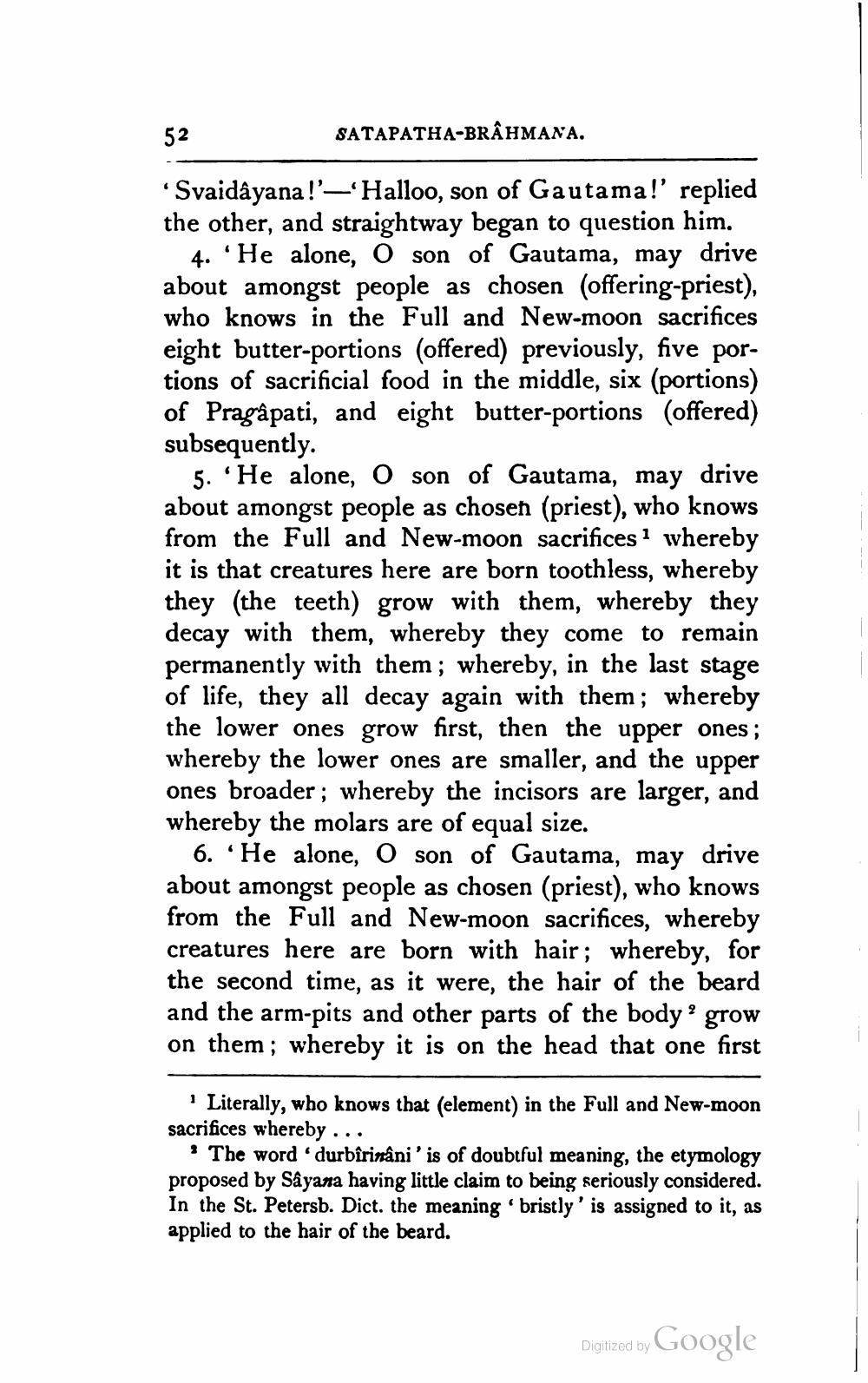________________
52
SATAPATHA-BRAHMANA.
"Svaidâyana !'—'Halloo, son of Gautama!' replied the other, and straightway began to question him.
4. He alone, O son of Gautama, may drive about amongst people as chosen (offering-priest), who knows in the Full and New-moon sacrifices eight butter-portions (offered) previously, five portions of sacrificial food in the middle, six (portions) of Pragàpati, and eight butter-portions (offered) subsequently.
5. 'He alone, O son of Gautama, may drive about amongst people as chosen (priest), who knows from the Full and New-moon sacrifices? whereby it is that creatures here are born toothless, whereby they (the teeth) grow with them, whereby they decay with them, whereby they come to remain permanently with them; whereby, in the last stage of life, they all decay again with them; whereby the lower ones grow first, then the upper ones; whereby the lower ones are smaller, and the upper ones broader; whereby the incisors are larger, and whereby the molars are of equal size.
6. 'He alone, O son of Gautama, may drive about amongst people as chosen (priest), who knows from the Full and New-moon sacrifices, whereby creatures here are born with hair; whereby, for the second time, as it were, the hair of the beard and the arm-pits and other parts of the body o grow on them; whereby it is on the head that one first
Literally, who knows that (element) in the Full and New-moon sacrifices whereby ...
• The word .durbîrinâni' is of doubtful meaning, the etymology proposed by Sâyana having little claim to being seriously considered. In the St. Petersb. Dict. the meaning 'bristly' is assigned to it, as applied to the hair of the beard.
Digitized by Google




